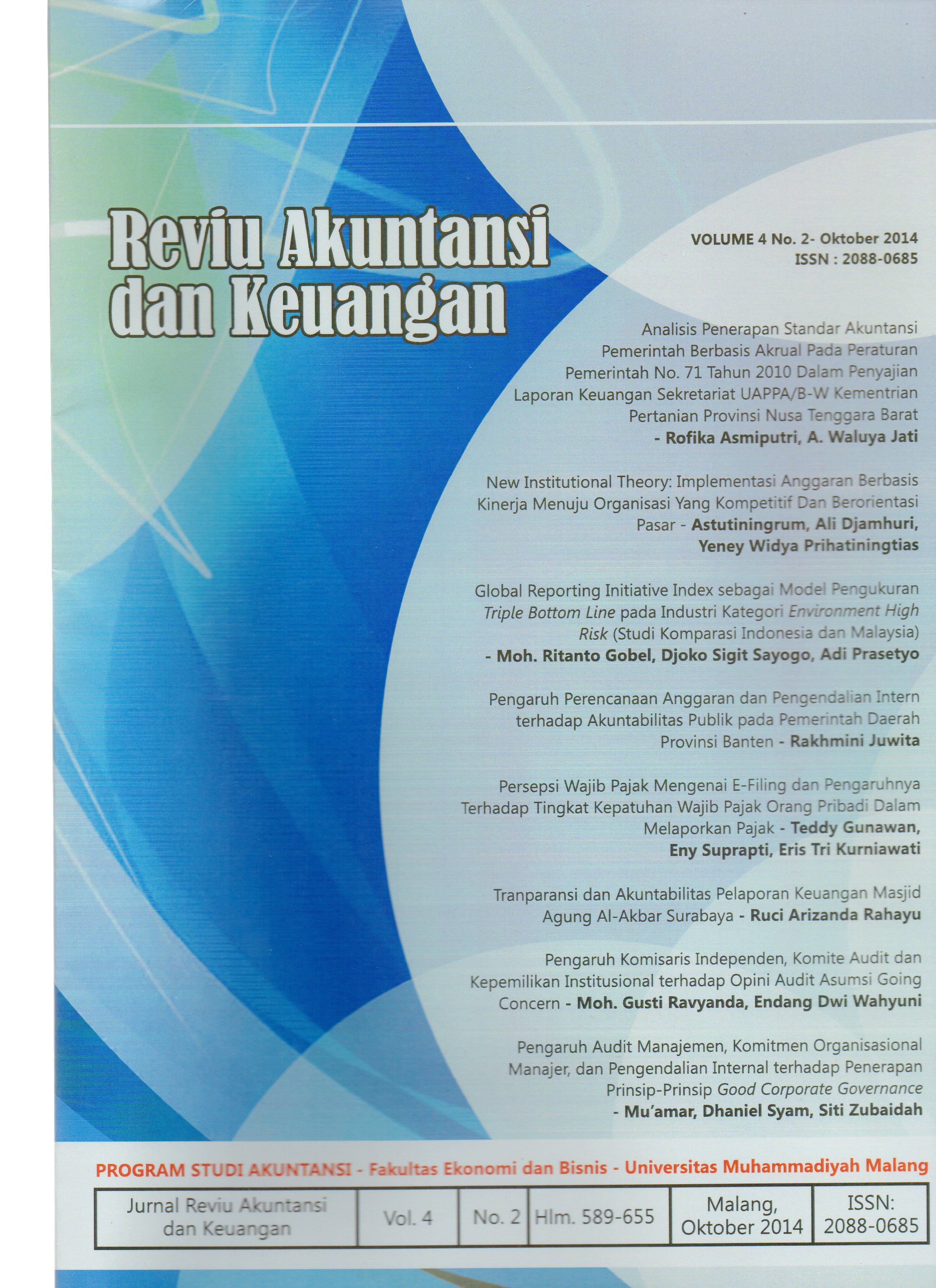Persepsi Wajib Pajak Mengenai E-Filing dan Pengaruhnya terhadap Tingkat Kepatuhan Wajib Pajak Orang Pribadi Dalam Melaporkan Pajak
DOI:
https://doi.org/10.22219/jrak.v4i2.4947Abstract
This research is aimed to examine the effect of taxpayer’s perception toward e-Filing system of
individual taxpayer’s compliance in tax reporting. This research is associative research. In
taxpayer’s perception there are e-Filing usefulness variable, e-Filing ease variable, e-Filing
complexcity, e-Filing security and privacy variable and e-Filing readiness. The population of this
research is individual taxpayer listed in Tax Office Pratam Batu. Sampling used of this research
is convenience sampling individual taxpayer who reported tax using e-Filing system. The technique of analysis data is questionnaire survey and to examine using multiple regression analysis. The result of this research are e-Filing usefulness variable, e-Filing security and privacy
variable and e-Filing readiness has effect on tax compliance in tax reported while e-Filing ease
variable and e-Filing complexcity has no effect on tax compliance in tax reported.
Keywords: E-Filing System, Compliance In Tax Reporting, Taxpayer’s Perception
Downloads
Downloads
Published
Issue
Section
License

Jurnal Reviu Akuntansi dan Keuangan is licensed under a Creative Commons Attribution-NonCommercial-ShareAlike 4.0 International License.
Authors who publish with this journal agree to the following terms:
- Authors retain copyright and grant the journal right of first publication with the work simultaneously licensed under a Creative Commons Attribution-NonCommercial-ShareAlike 4.0 International License that allows others to share the work with an acknowledgement of the work's authorship and initial publication in this journal.
- Authors are able to enter into separate, additional contractual arrangements for the non-exclusive distribution of the journal's published version of the work (e.g., post it to an institutional repository or publish it in a book), with an acknowledgement of its initial publication in this journal.
- Authors are permitted and encouraged to post their work online (e.g., in institutional repositories or on their website) prior to and during the submission process, as it can lead to productive exchanges, as well as earlier and greater citation of published work (See The Effect of Open Access).










